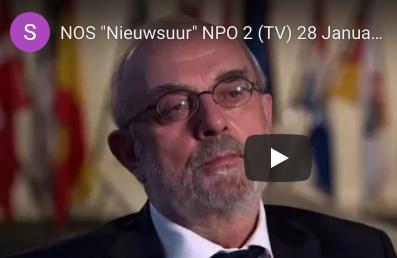
THE concept of "law and order" is under attack in Europe. The second-largest European institution and Europe's largest patent office is shamelessly throwing the law in the bin, in effect binning the very basis for its existence so it now operates in a legal vacuum, just like some warlords in Libya.
"Michel and Minnoye should be in retirement. They're still closely connected to the people who ruined (and sometimes still ruin) the institution, driving out the talent, lowering patent quality/legitimacy, and throwing 40 years of organisational reputation under the bus."Speaking of Libya, Benoît Battistelli's master is in prison (yes, connection to northern Africa) and António Campinos lost his father in Africa where he had fought the sort of colonialism his son now fights for. It's an act of occupation against European citizens (e.g. European software patents against European programmers like myself). It's also an act of occupation against people who wish to or need to be vaccinated. Whose interests are being served by those well-dressed warlords?
The lawlessness of the EPO is concerning or deeply worrying a growing number of people, some of whom aren't suppressed by the employer (at least not if they comment anonymously) or by some 'warlords' of blogs, such as the administrators at IP Kat. Looking at some of the latest comments in Kluwer Patent Blog, somebody has just pointed out the way in which the U.S. Patent and Trademark Office (USPTO) proudly boasts granting far too many patents, often overlooking or intentionally ignoring laws and caselaw, e.g. SCOTUS on Alice (35 U.S.C. ۤ 101). "The USPTO just issued its eleven millionth patent," said this comment, "its eleven millionth restraint of trade. Business at the EPO is confined to deciding whether to allow or cancel just another such restraint of trade, one of millions of the things."
We've recently relegated much of our patent coverage to Daily Links, where personal comments are added inline.
As far as we know, some of the worst censors at Kluwer Patent Blog no longer write there; there are other decent comments there with legitimate points being raised and regarding G 1/21, as below, it says:
With just over two weeks to go before the oral proceedings in G 1/21, it is somewhat surprising to note the complete absence in the public record of any indications that the EBA has, or will soon be, initiating proceedings under Art 24(4) EPC.
Indeed, this is quite astounding for a number of reasons.
Firstly, a party to the proceedings has (more than two weeks ago) raised formal objections under Art 24(3) EPC. This means that, under Art 24(4) EPC, the EBA has no option but to take a decision on the objections without the participation of the members concerned. Such an important decision cannot be taken lightly, or without seeking comments from the members concerned. Sorting all of this out takes time … which, if oral proceedings are to go ahead as planned, is now running very short.
Secondly, it is difficult (though sadly not impossible) to conceive that the EBA will concoct a reason to dismiss the objections against its current Chairman. Thus, a change in the composition of the EBA is likely and needs to be announced to the parties in advance of the oral proceedings.
Thirdly, objections to members of the EBA were first formally raised in an amicus filed (by epi) precisely a month ago today. The EBA has therefore had plenty of time to consider how it should go about dealing with the points raised in that amicus brief.
Lastly, it is possible that wheels are in motion behind the scenes, and that a decision on objections to certain members will issue very soon. However, if the first that the public learns of the EBA’s deliberation on the objections is their final decision, then, unless the slate is wiped clean (i.e. if all decisions taken by the current Chair are rescinded and proceedings in G 1/21 are re-started with a new composition of the EBA determined by a new Chair), this would hardly be the kind of transparency that would help to ensure that justice is seen to be done … especially when there are so many objectively well-founded reasons to doubt the independence and impartiality of the EBA in its current composition.
 Notice the mention of two notorious former officials, Jacques Michel [1, 2, 3] and Willy Minnoye (we wrote about both several times over the years). They apparently still fail to see that the EPO making up the rules as it goes along isn't acceptable. Michel and Minnoye should be in retirement. They're still closely connected to the people who ruined (and sometimes still ruin) the institution, driving out the talent, lowering patent quality/legitimacy, and throwing 40 years of organisational reputation under the bus. ⬆
Notice the mention of two notorious former officials, Jacques Michel [1, 2, 3] and Willy Minnoye (we wrote about both several times over the years). They apparently still fail to see that the EPO making up the rules as it goes along isn't acceptable. Michel and Minnoye should be in retirement. They're still closely connected to the people who ruined (and sometimes still ruin) the institution, driving out the talent, lowering patent quality/legitimacy, and throwing 40 years of organisational reputation under the bus. ⬆